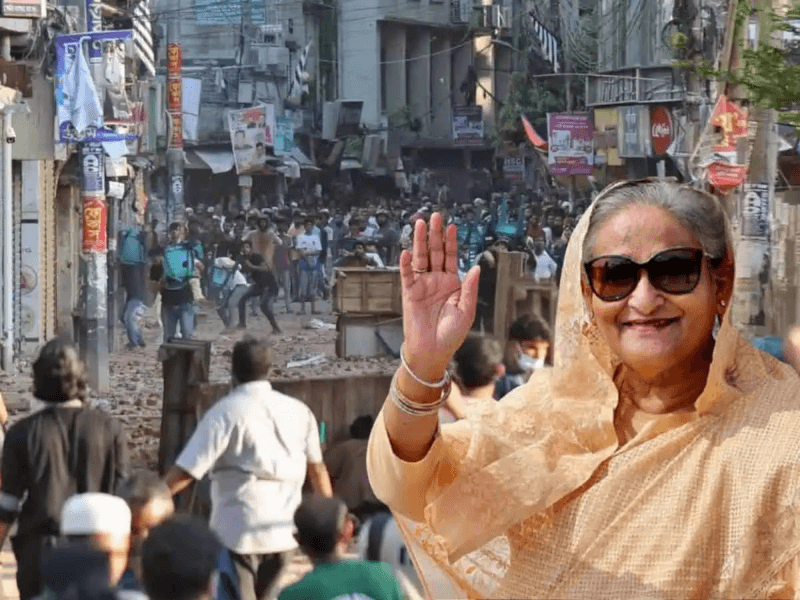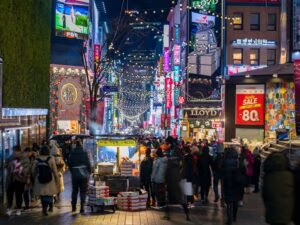Bangladesh Prime Minister Sheikh Hasina stepped down on Monday following weeks of mass protests. The interim government of Bangladesh will be formed in the meantime helped by nation’s army chief.
In a televised address to the nation Army Chief Waker-Uz-Zaman said he is inviting political leaders to a meeting and will also meet with President Mohammed Shahabuddin on the matter. The army expects to reach a solution tonight, he added.
As reported by the local media Hasina, 76, fled the country with her sister as anti-government protesters converged on the capital. Hasina was facing a lot of pressure to resign for weeks following demonstrations that turned deadly.
As reported by Channel 24 on Monday afternoon protesters stormed her official residence. TV images showed hundreds of people ransacking the building and taking away chicken, fish and vegetables.
Her resignation follows a weekend of student-led clashes with pro-government supporters that left about 100 dead. Almost 200 were killed in unrest in July already.
The peaceful protests which started in June seeking to abolish a government jobs quota turned into deadly unrest in recent weeks with demonstrators seeking to oust Hasina.
Bangladesh’s economy which is already in turmoil and is heavily dependent on the financial aid from the International Monetary Fund and other donors, and earns most of its foreign exchange from exports of garments. Clothing giants like Hennes & Mauritz AB, Adidas AG, Wal-Mart Inc. and Gap Inc. have operations in the country.
The days of unrest has left a dent on Bangladesh’s economy with a staggering figure of $10 billion courtesy curfews and the internet blackouts. All this made it difficult for the for garment manufacturers to operate, impacting the country’s foreign exchange earnings. All this has resulted in reserves dropping to $21.8 billion in June.
Country under Sheikh Hasina made rapid progress and helped lift millions out of poverty, those achievements were often overshadowed by what critics contend is her authoritarianism, and accusations she’s used state institutions to stamp out media criticism.
Rampant unemployment in the country especially among the youth, with private sector struggling to generate enough jobs for the poor can be cited main root of these protests.






